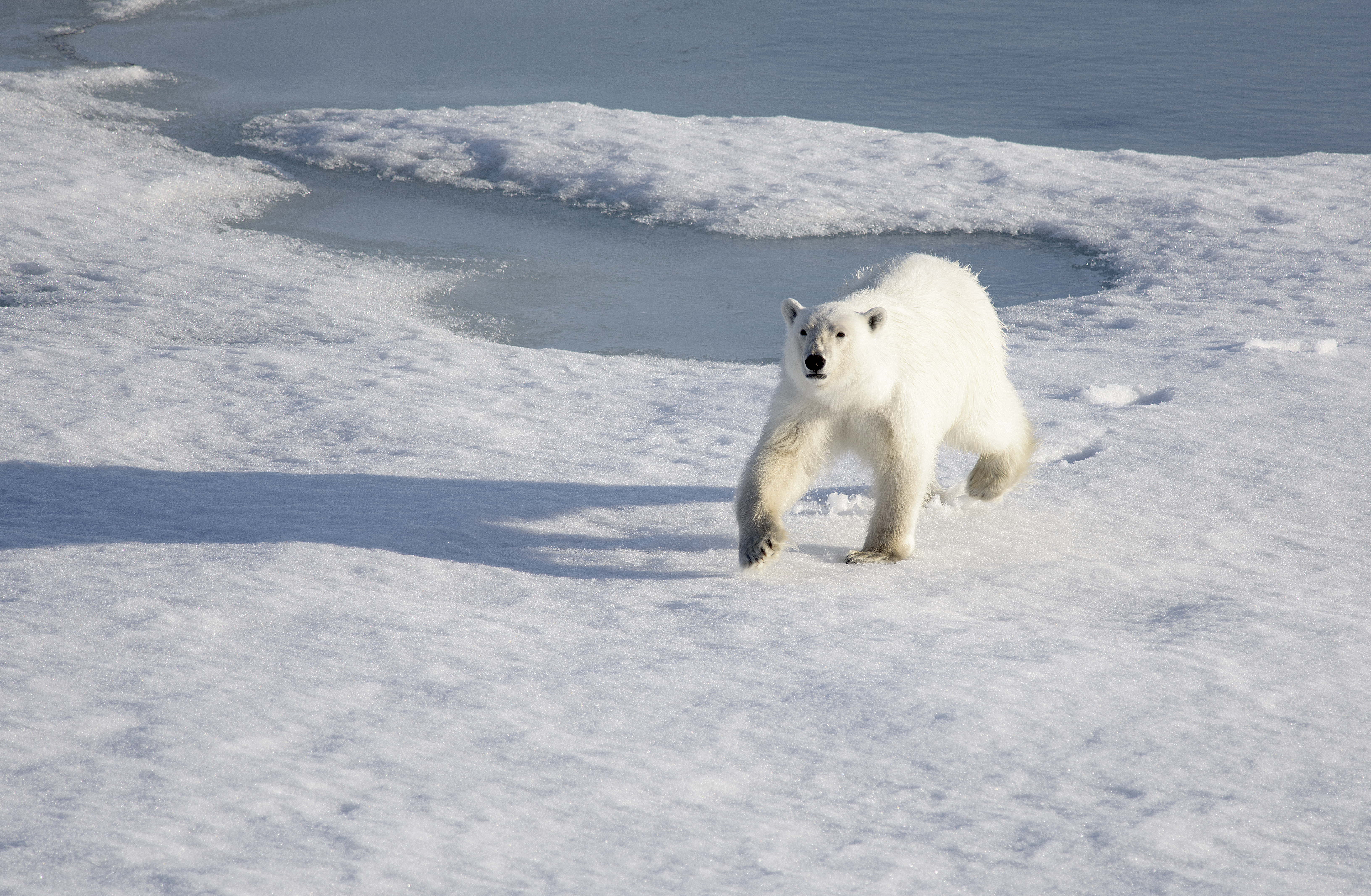
A new U.S. study of polar bears off Alaska’s coasts says faster-moving sea ice brought on by rapid global warming is adding to the animals’ physiological stress.
That adds to problems for polar bears in the southern Beaufort Sea, research ecologist George Durner said.
“Polar bears in those regions largely stay within those subpopulation areas throughout their lives,” Durner said. “But to do that they can’t just sit still. If they want to stay within their subpopulation bounds, they constantly have to be moving east all the time. … It essentially is a treadmill.”
The study by U.S. Geological Survey researchers and others said the already at-risk bears have to burn more calories to stay within their preferred habitat as sea ice drifts.
Researchers have documented declining body condition, reproduction and survival among polar bears as diminished sea ice gives them fewer opportunities to hunt for seals.
The study contains two data sets ranging from 1987-1998 and 1999-2013.
Durner pointed to the survival rate of young bears as the most significant changes in the polar bears over that span of time.
“Steve Amstrup and I did a survival study that was published back in 1995. In that study we determined that first-year survival of young was around 65 percent,” he said. “In the most recent work that was done by Jeff Bromaghin and others including, I was a co-author on that work as well, first-year survival dropped down to I believe it was 40 percent.”
Polar bears may disappear from Alaska by mid-century as sea ice continues to melt, Durner said. However, as long as Alaskan sea ice reforms each winter, Canadian polar bears may enter the region on a seasonal basis.
Durner said that polar bear research will be refined as resources become available and that he hopes this study will influence arctic conservation policy.
